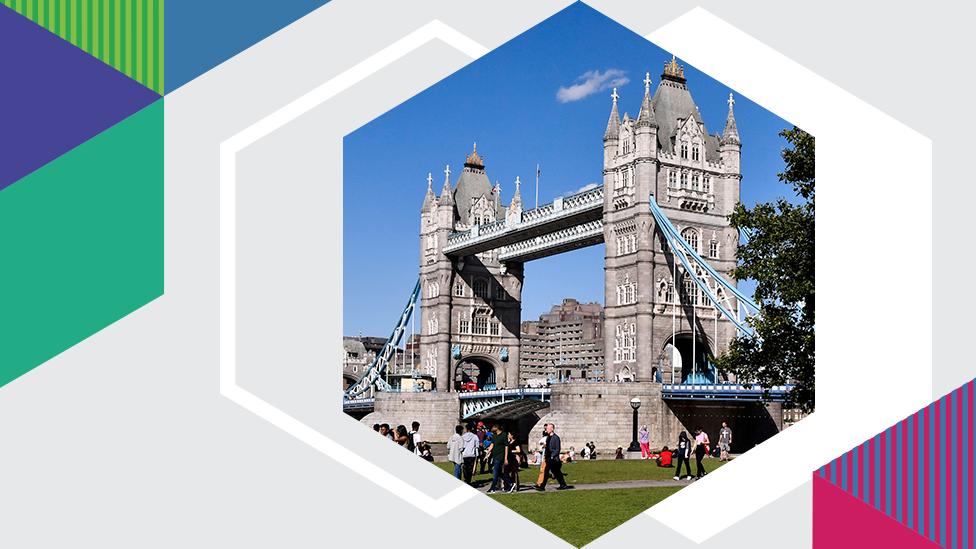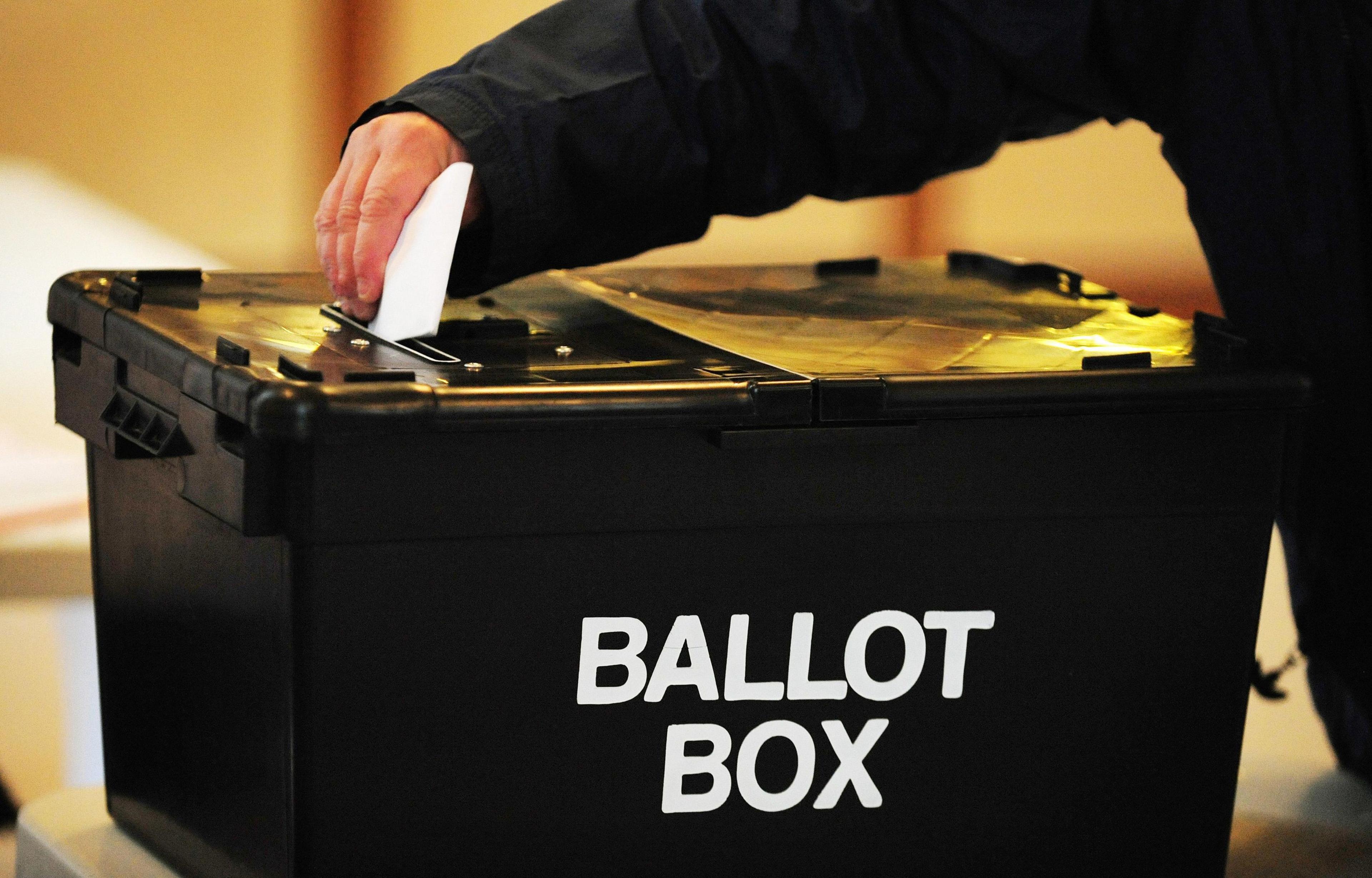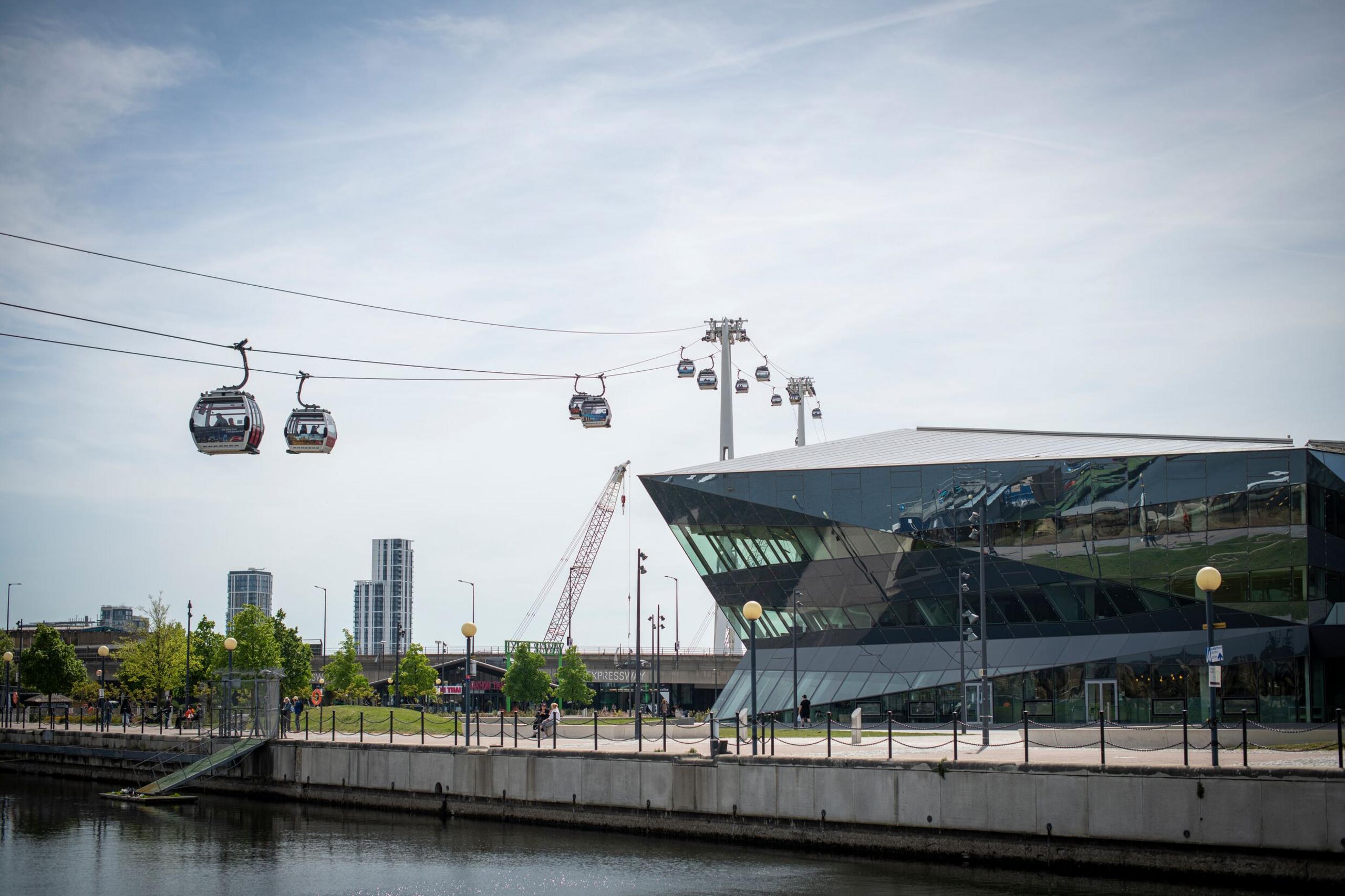What does the mayor and the London Assembly do?

- Published
The mayor of London has the largest personal mandate of any politician in the UK, with a constituency of 6.2 million voters.
With a budget of billions, the mayor has an important role in making London a better place for everyone who visits, lives or works in the city.
The job, currently held by Sadiq Khan, is up for re-election on 2 May.
But what exactly are the roles and responsibilities of the mayor, and the people that hold them to account?
Why is there a mayor of London?
London has had a mayor since 2000, after Londoners voted overwhelmingly in favour of creating an elected mayor and assembly to run the capital.
The role aims to champion the people who live in the city and the businesses that operate within it.
The mayor receives a £20.4bn budget that they use to improve London’s economic and social development.
London's mayor forms part of the Greater London Authority (GLA), also known as City Hall. The 25-member London Assembly, which keeps the mayor in check, is also part of the GLA.
The position of mayor is currently held by Sadiq Khan who has been in office since 2016. It was previously hold by Boris Johnson for eight years, and before that by Ken Livingstone.
They receive a salary of £154,963.
Many other places in the UK, including Manchester, Liverpool and Sheffield have elected mayors.
What are the responsibilities of the mayor?
The mayor has a number of key areas of responsibility.
The first is transport. They are responsible for Transport for London (TfL) and have the power to set fares, which is where TfL gets the majority of its funding.
They also have some powers over London roads - the congestion charge and the Ultra Low Emission Zones both came from the mayor's office.
The mayor has some control over policing. They set out how London is policed and staffed as well as appointing the Met Police commissioner and holding them to account. Around 30% of the Met's budget comes from the mayor, the rest comes from national government.
When it comes to housing, the mayor can set affordable homes targets and work on them with local authorities and developers. They receive funding from central government to build affordable homes.
The mayor has very few direct powers over the economy, but they do support businesses in the capital and have control over strategic planning which means they can approve projects that will impact London.
Another area of responsibility is supporting London's culture and creative industries. They mayor runs the London Borough of Culture scheme and employs a night czar who supports the capital's nightlife.
What does the mayor not have control over?
Many day-to-day services such as social services, schools and rubbish collection are run by London councils.
Similarly, the NHS, the welfare state and national tax rates are controlled by central government.
Where does the mayor get their money?
City Hall is funded by a combination of government grants, business rates and council tax.
It also gets money from TfL fares and locally raised taxes and charges such as the congestion charge.
A portion of our council tax goes directly towards the mayor's budget. For the 2024-2025 budget, that amount was an average of £471.
What does the London Assembly do?
The London Assembly is composed of 25 members - 14 represent constituencies, and the other 11 are elected by a party-list system.
It is easy to think of them as a pool of London experts, many of them have worked their way up in local politics or run businesses and charities.
Their main power lies in approving or rejecting the mayor's £20.4bn budget plans.
They also work on committees which scrutinise the mayor's policies and check if they are working. The committees operate in a similar way to the system in the parliament.
The London Assembly can also hold the mayor to account during Mayor's Question Time, external sessions which are held 10 times a year. The mayor and their officials must answer the questions put to them by assembly members.
Listen to the best of BBC Radio London on Sounds and follow BBC London on Facebook, external, X, external and Instagram, external. Send your story ideas to hello.bbclondon@bbc.co.uk, external
- Published25 April 2024

- Published2 April 2024
